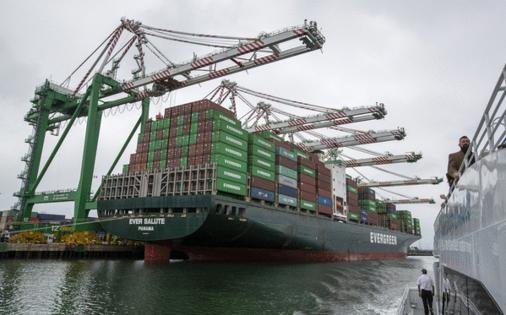Do Europeans support retaliatory tariffs on the US? Here's what a new poll found
Published in News & Features
Europeans aren’t inclined to take U.S.-imposed tariffs lying down, new polling suggests. Instead, they’re ready to go tit-for-tat.
In an April 1 YouGov survey, the majority of respondents in seven European countries — including Britain, France and Germany — said they would support slapping retaliatory tariffs on imported American goods.
The poll comes the day before President Donald Trump is set to impose his so-called “Liberation Day” reciprocal tariffs, which could affect numerous countries in Europe and around the world, though the exact details are murky.
“LIBERATION DAY IN AMERICA IS COMING, SOON,” Trump wrote in a March 27 Truth Social post. “FOR YEARS WE HAVE BEEN RIPPED OFF BY VIRTUALLY EVERY COUNTRY IN THE WORLD, BOTH FRIEND AND FOE. BUT THOSE DAYS ARE OVER — AMERICA FIRST!!!”
Since taking office, Trump has also announced 25% tariffs on foreign steel, aluminum and automobiles.
In response to these actions, Ursula von der Leyen, the president of the European Commission, said in a March 31 speech, “We do not necessarily want to retaliate but, if it is necessary, we have a strong plan to retaliate and we will use it.”
Retaliatory tariffs
The poll — conducted March 6-24 — sampled 9,455 respondents in Britain, France, Germany, Denmark, Sweden, Spain and Italy.
In each country, most respondents favored levying tariffs on U.S. goods in the event that the U.S. imposes tariffs on European goods.
Support was the highest in Denmark, where 79% favored retaliatory tariffs and 9% opposed them. Results were similar in Sweden (73% versus 12%) and in Britain (71% versus 11%).
Meanwhile, support was the lowest in Italy (56% versus 23%) and Germany (68% versus 17%), according to the poll, which has margins of error between 2.1 and 3.1 percentage points.
Economic impact
At least half of respondents in each country also said they believe U.S.-imposed tariffs would have at least some impact on their country’s economy.
Respondents in Germany — which has a large automotive industry — were the most likely to anticipate turbulence, with 75% saying American tariffs would have a fair amount or a lot of impact on the German economy.
Seventy-one percent of respondents in Spain and 70% of respondents in France and Italy said the same.
Respondents in Denmark were the least likely to expect tariffs to have ramifications, with 50% saying they anticipated a lot or a fair amount of impact on the Danish economy.
In her recent speech, von der Leyen echoed these concerns, saying she expected tariffs to “fuel inflation” and “cost jobs.”
Fair trade?
Respondents were also asked whether or not they believe Europe has been fair when it comes to its trade with the U.S.
A majority of respondents in Denmark, Britain and Germany — 67%, 55% and 53%, respectively — said they believe Europe has been fair.
Meanwhile, large pluralities of respondents in Sweden (48%), Spain (44%), France (41%) and Italy (40%) said the same.
Trump has long accused Europe of engaging in unfair trade practices with the U.S., citing trade deficits.
Addressing these concerns in her speech, von der Leyen said, “I hear Americans, when they say some others have taken advantage of the rules. I agree. We also suffer from it. So let us work on it. But tariffs across the board make things worse, not better.”
______
© 2025 The News Tribune (Tacoma, Wash.). Visit www.TheNewsTribune.com. Distributed by Tribune Content Agency, LLC.







Comments